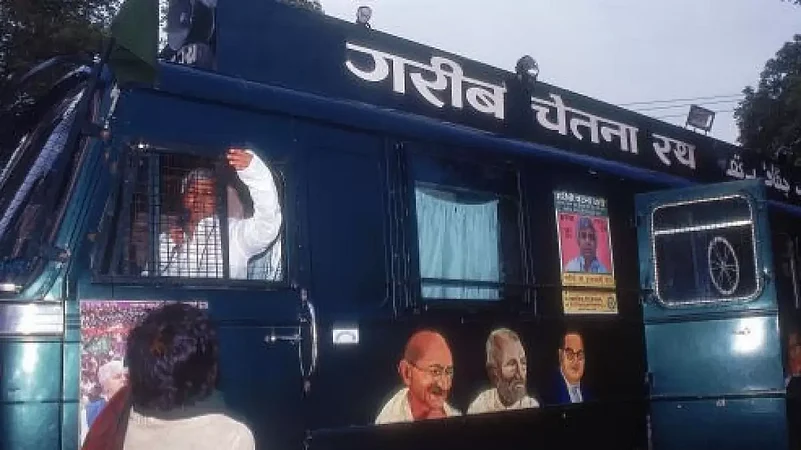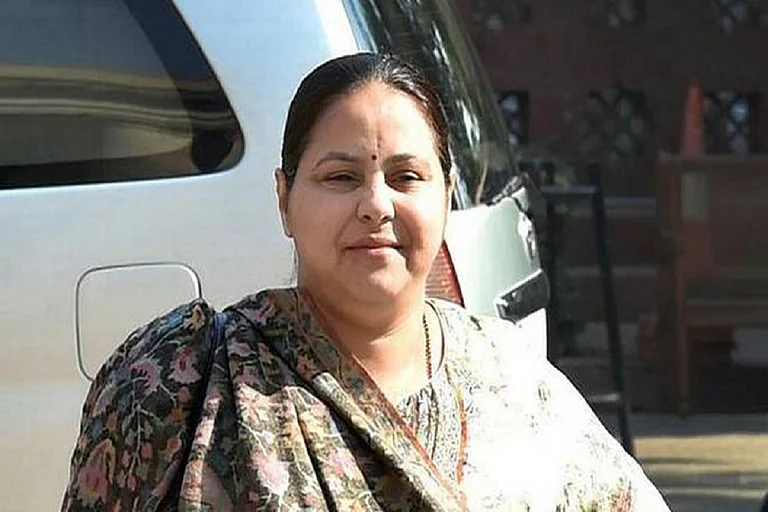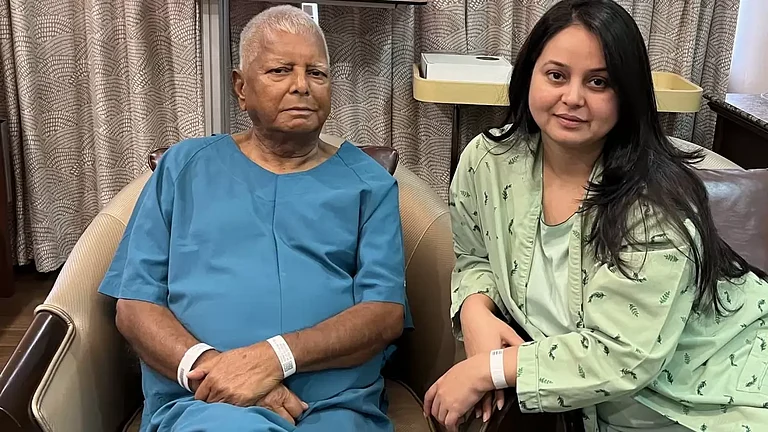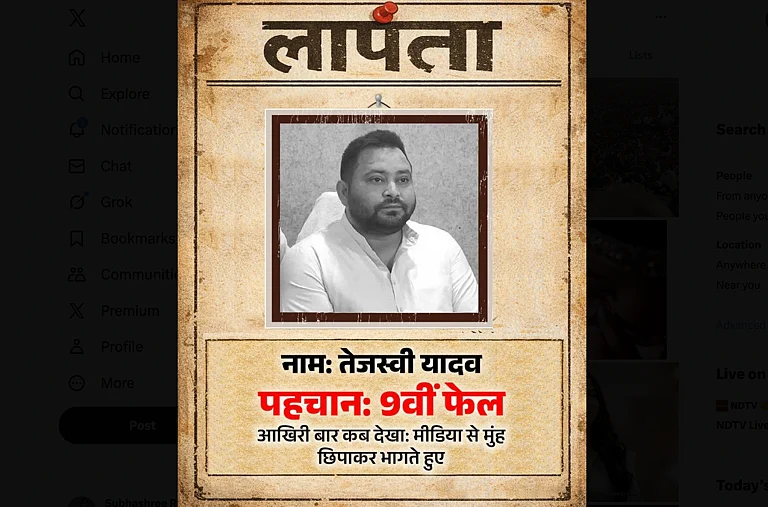Former Deputy Chief Minister Lalu Prasad Yadav's name was not in the poster published on the evening of August 26 in Patna, the state capital of Bihar, for the discussion on journalist Manoj Mitta's book "Caste Pride: Battles for Equality in Hindu India". But at the last moment, the 75-year-old agreed to attend the program and appeared on stage for a few minutes.
He hardly spoke for 10 minutes, but in these 10 minutes, he made clear the future politics of Rashtriya Janata Dal (RJD), which is now being run by Tejashwi Yadav, as senior Yadav only suggests.
He said in his fragile voice, "Social justice and secularism are at our foundation. We are continuously fighting for it and will have to do so in the future also."
Today, when religious polarisation has reached its peak to retain power in the country, Lalu Prasad has clearly expressed his views on the issue of social justice and secularism and has given a message that he will not compromise on his basic ideas. This politics suits Lalu Prasad Yadav because OBCs, especially the Yadav caste, backward classes and Muslims have played a big role in taking his political career to the top.
In 1990, when Lalu Prasad Yadav became the Chief Minister of Bihar, he described himself as a man of the OBCs and the backward classes. He fought hard to implement the recommendations of the Mandal Commission for OBC reservation in government jobs in Bihar and brutally suppressed anti-Mandal protests in Bihar.
In support of the Mandal Commission, he used to say that for centuries there had been a relationship of master and raiyat between the big landlords and the backward classes who cultivated their lands. He would say that Bihar has mostly had upper-caste Chief Ministers who have shown no interest in changing the status quo.
When he was the Chief Minister, he would go to Dalit settlements and bathe the children and dress them. He would go to the houses of Dalits and eat food in their utensils. He removed the toddy tax imposed on the toddy tapper community and abolished the water tax collected from fishermen for fishing. He would go to the backward classes and call the district magistrate on the stage and say, These (DMs) are your servants and not masters.
In this way, he became the undisputed leader of OBCs and backward classes.
Now it was time to make Muslims see options in Lalu Prasad Yadav.
He stopped the Rath Yatra in 1990 which was heading to Ayodhya through Bihar. Lal Krishna Advani was leading the yatra in an engine-fitted chariot. Lalu Prasad Yadav had stopped the Rath in Samastipur and Advani was arrested. He was later sent to Delhi.
This incident made Lalu a favourite among Muslims who were disillusioned with Congress during whose regime the infamous Bhagalpur riots had happened
"Lalu Yadav knew that BJP's game of polarisation could be countered only by uniting OBCs, backward classes and Muslims, hence he made social justice and secularism the pivot of his politics and was successful to a great extent," an RJD leader says.
In the August 26 program, Lalu Yadav underlined his role in reducing the atrocities on Dalits during his time and said that the problem of caste and caste atrocities is centuries old. There have been conflicts from time to time and this is happening even today. “But, we have slowed down its (upper caste attacks on backward classes) attitude,” he said.
Caste is a big factor in the politics of Bihar or rather North India. Especially, after the implementation of the recommendations of the Mandal Commission, the caste consciousness among OBCs became very strong, which is still intact. The rise of many caste-based political parties in Bihar like Lok Janshakti Party, Upendra Kushwaha's party, Jitan Ram Manjhi's Hindustani Awam Morcha (Secular), Mukesh Sahni's Vikassheel Insaan Party, is the result of this.
However, keeping in mind the caste consciousness, the BJP also gave important posts to OBC and backward caste leaders in its party. The saffron party weakened the vote bank of caste-based organisations and brought them into BJP's folder.
Sensing this, Lalu Prasad Yadav has been demanding a caste-based census since 2014. After the victory of JDU-BJP in the 2020 Bihar Assembly elections, RJD started demanding a caste census. Tejashwi Yadav even met Nitish multiple times on this when he was the Leader of Opposition.
In 2022, when Nitish Kumar left BJP and joined hands with RJD, the path for caste census was cleared. Caste census started in Bihar at the beginning of this year and is in its final stage.
Bihar BJP itself is taking the caste census seriously, so most of the leaders welcomed the move. However, some leaders also opposed it.
Lalu Yadav attacked BJP over the caste-based census and said, "We have conducted the caste census. The present government of Delhi (Centre) views it with hatred and even went to court against it."
“But unless we know the actual number of the caste, how will we be able to implement the scheme for them,” he asked.
Realising the impact of caste census data in neutralising religious polarisation, Congress and MP Rahul Gandhi in April demanded Modi government to make 2011 caste census data public.
In a recent INDIA Alliance meeting, too, caste census was demanded.
It is believed that social justice is the solution to BJP's Hindutva-centric politics in the country and when it comes to social justice, Lalu Prasad Yadav will lead from front.
Senior RJD leader Shivanand Tiwari, who has been in politics with Lalu for a long time, says, "How will you contest the 2024 and 2025 elections without Lalu? He will have to be included. As long as he is alive, he will have a role in politics."



























